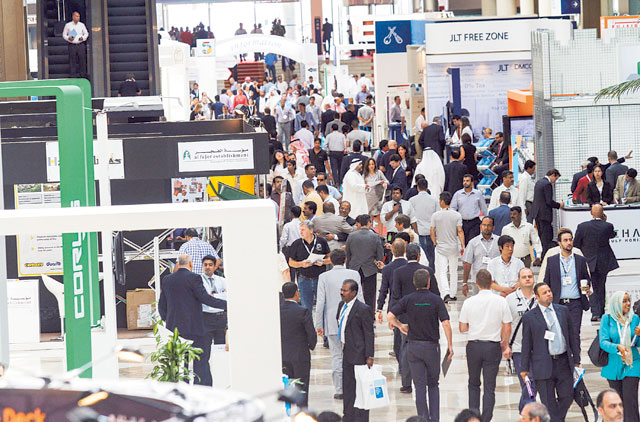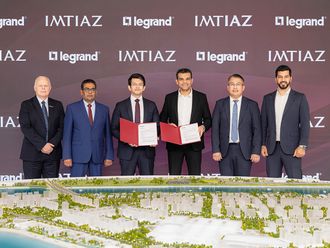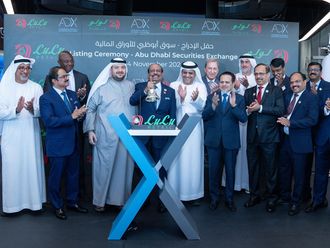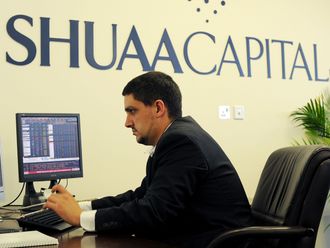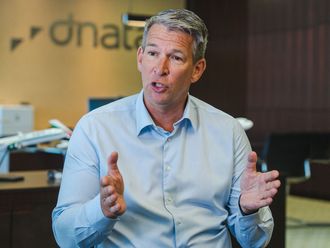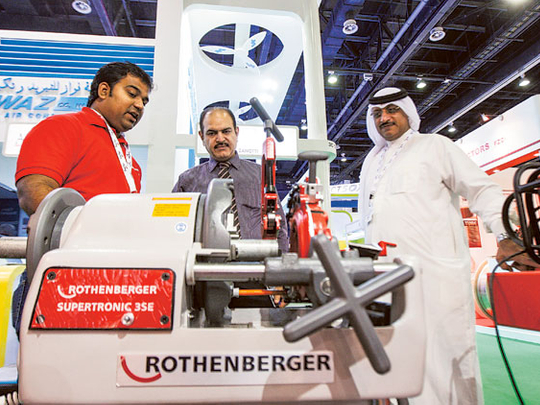
Dubai: European construction companies are pursuing growth opportunities in the region that’s seeing a construction boom in the GCC and rebuilding projects in some Arab Spring countries as the Eurozone crisis continues to drain their profits, company executives said on Monday.
Spanish companies had a strong turnout at the Big 5 this year, eager to expand their exports to the GCC and Middle East as the construction sector back home is in dire straits.
Granada-based firm, Sima, which manufactures light construction equipment, earned one million euros in turnover from its Middle East exports as of now and hopes to increase that by 15 per cent, according to a company official.
“The Middle East is very important to us. All Spanish companies have to react very quickly to what’s happening in Spain,” said Andrew Applin, head of business development for MEA and Asia at Sima.
Saudi housing boom
Sima is targeting Saudi Arabia for the residential construction boom, said Applin.
“The Saudi government is very cash-rich and wants to invest in infrastructure. There’s sustainable growth in the Middle East for 20 years and that’s not something you can say for many countries,” he said.
The Kingdom of Saudi Arabia’s construction sector has maintained its positive growth trajectory as analysts forecast a robust average growth of 4.5 per cent from 2013 to 2017. Aggressive public sector expenditure remains an important growth catalyst for KSA’s construction sector with $71.2 billion in contracts awarded by the government in 2011 alone.
Sima is also pushing into Libya, Egypt and Iraq, where the governments are spending money on infrastructure following the Arab Spring and war respectively.
“They had radical political changes but once political stability starts, people are looking to rebuild and the governments put money into infrastructure to gain the favour of the electorate,” he said.
Exports could be the major saving factor for Spanish construction companies now.
“The Spanish government has put a lot of energy to support companies in this stand to find contacts in other markets and the Middle East is one of them,” he said. “Spain is 100 per cent focused on internationalising itself in the export business and that’s how you recover — by exporting,” he said.
Cork flooring
Portuguese company, Amorim, has already lured the UAE with wood and cork flooring that was used in the Guggenheim museum construction in Abu Dhabi, it said.
Cork, made by stripping tree bark that grows back, is used for flooring and thermal and acoustic installation.
The company is looking for new opportunities in the Middle East where it has participated in Big 5, Index, Hotel Show and Domotex ehibitions.
“Cork flooring is a niche and epensive product and it’s not that easy to sell as a new concept,” said Jose Belinha, head of market management at Amorim. “So far the Middle East is receptive, especially archietects and designers because they are environmentally conscious and this is a green product.”
About 95 per cent of the company business is in exports, he said.
“In Portugal it’s not easy now but its making its own with with sacrifices from the people,” he said. “Everyone is looking for new markets outside.”
Duct work machinery
For the UK-based company, Firmac, which is in duct work machinery, the Middle East is an attractive opportunity because their home market is saturated for this type of product — but there are some obstacles.
“There are more places, such as Saudi, with a bias for the US specifications, which could answer a few questions on why sales are slower there than elsewhere,” said Lewis Firth, managing director of Firmac.
Another problem is the hesitation of workers to go to Arab Spring countries because of their perceived fear of political instability.
“We have to go to where the work is. The problem is, to get people to go these countries, there’s still that fear. It’s one thing to get work there, it’s another to get people to do the work,” he said.


